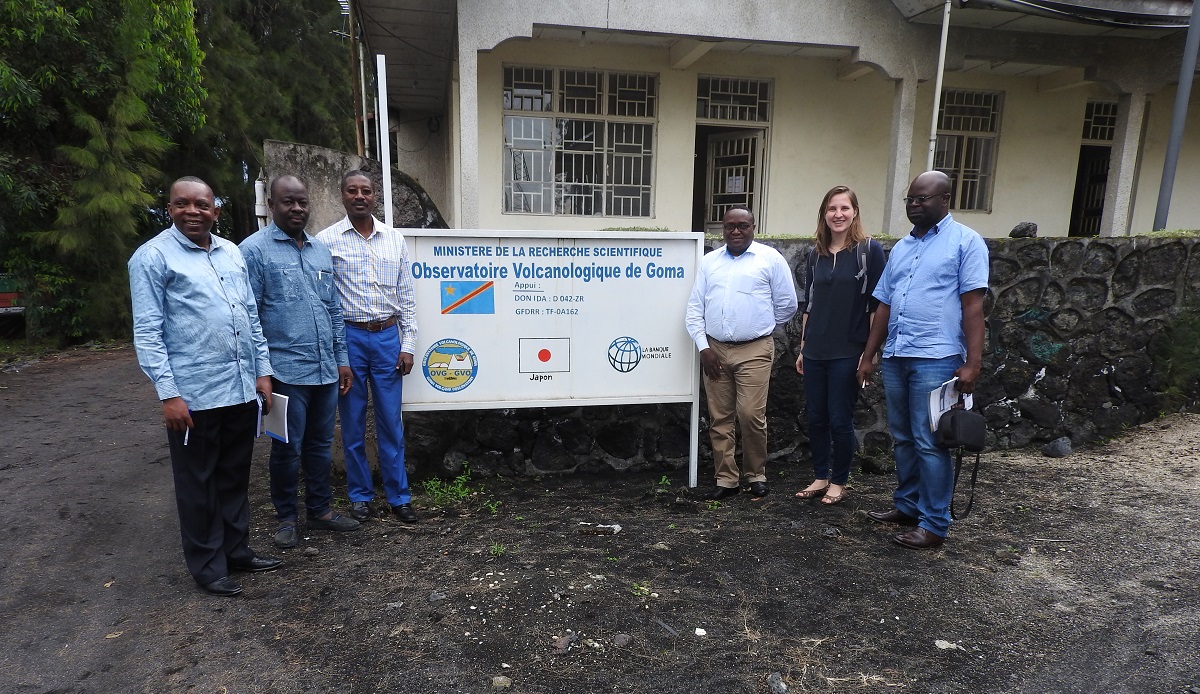By Yves Ngunzi, DEPP Learning Advisor, Democratic Republic of Congo
In February 2018, Melina Koutsis from the Start Fund team visited Goma, to facilitate the induction of our new Start Fund Regional Advisor for West and Central Africa, Antoine Sanon. Goma is the capital city of North Kivu province in the east of the DRC. An aim for the visit was also to learn from the standing decision-making group members and other stakeholders about the Start Fund and the Disasters and Emergencies Preparedness Programme (DEPP) activities in DRC.
The Start Fund is a multi-donor pooled fund which provides fast and direct funding to NGOs for ‘under the radar’ crises. The Start Fund complements existing humanitarian financing mechanisms, but is unique because it is collectively owned and operated by the members of the Start Network on behalf of the wider civil society sector. DRC is currently the Start Fund’s most alerted country, with close to 2 million pounds disbursed since 2014.
During their visit, the DEPP Learning Advisor and the Shifting the Power (STP) Representative, both of whom are funded by the Start Network, together with CAFOD’s country team discussed missed opportunities regarding the collaboration between the Start Fund, the in-country DEPP projects, and other initiatives aimed at promoting the localisation of aid in the humanitarian sector. While the Start Fund is a unique initiative which has contributed to faster assistance being given to affected communities, a further huge difference to increase localisation could be made if more national and local NGOs were involved in the decision-making process and if those who participated in DEPP were successful in accessing Start Funds, putting what they have learnt into practice. The good news is that Start Fund is looking to allow more local NGOs in the decision-making process of the Start Fund.
Why the Start Fund?
The meeting began with a refresher day for the DRC standing decision-making group and other local NGOs wanting to know how the Start Fund operates with the discussions focusing on: Why the Start Network? Why the Start Fund? What is the process for raising alerts and anticipation alerts? Participants were interested to hear about different Start funding mechanisms. It seems that in the DRC, Start Network members have never submitted an Anticipation Alert or Analysis for Action (AA) Grant but some ideas are under discussion, such as an alert for the forthcoming elections and an Analysis for Action grant for a potential volcanic eruption.
The second day’s session enabled participants to deepen their understanding of the Start Network in general and specifically the Start Fund. Many of the NGOs were interested to know if it was still possible to become a Start Network member and what the criteria are for participating in the in-country decision-making group. There are some ideas of supporting the establishment of hubs, for example a francophone hub or central Africa hub, which would be open to new membership. With regard to localisation, the meeting gave space to talk about the Start Fund management response to the localisation review and the findings of DEPP localisation consultation in DRC. It was recommended that a road map be drawn up by members of the Start Network, local civil society organisations, and the government to advance localisation and finally “walk the talk”. Local NGO representatives asked about a plan made by Start Network members to sustain the achievement of DEPP, especially the localisation agenda.
The final two days served for visiting actual and potential partners and donors such as OCHA, ECHO, Goma Volcano Observatory, Christian Aid, Tearfund, and the Bureau d’Informations, Formations, Echanges et Recherches pour le Développement (BIFERD) in DRC. In general, the non-members of Start Fund who were visited found it relevant as it complements other initiatives in place and provides new opportunities. The Crisis Anticipation Window, which received funding from the European Civil Protection and Humanitarian Aid Operations (ECHO), was also welcomed as a unique initiative that promotes the culture of early response.
The outputs of the visit included: the mandate and tasks of the DRC standing decision-making group were clarified; the roles and responsibilities of the Start Fund Regional Advisor were defined; the areas of collaboration with other initiatives were identified and key priorities set for the in-country Start Network members.
Those who attended were grateful for the visit as it has contributed to keeping alive the following message from the Start Fund: Respond early and don’t wait, anticipate!
Read more about the Start Fund

